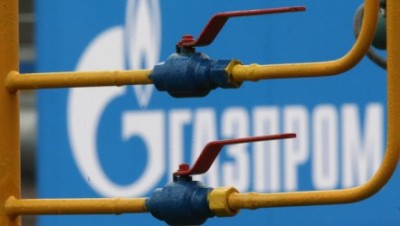Britain Unable to Pay for Russian Gas Deliveries

All Global Research articles can be read in 51 languages by activating the “Translate Website” drop down menu on the top banner of our home page (Desktop version).
To receive Global Research’s Daily Newsletter (selected articles), click here.
Visit and follow us on Instagram, Twitter and Facebook. Feel free to repost and share widely Global Research articles.
***
Britain is the only country to have imposed sanctions on Russia’s Gazprombank, through which payments for Russian natural gas are made. It is thus unable to pay for Russian gas after President Putin’s decree that this commodity must be paid for in rubles.
Foreign-currency accounts on the Moscow exchange for Gazprom customers were opened where currencies can be converted into rubles, but Britain has opted out of this arrangement. Europe has meanwhile not been able to present a united front regarding the US-imposed sanctions regime against Russia. Some countries will be hit harder than others. Hungary has already signalled its intention to ignore sanctions.
Slovakia, Bulgaria and Moldova have now agreed to pay in rubles while Latvia, Lithuania and Estonia have rejected payments in Russian currency. Other countries are still trying to arrange deliveries.
Dmitry Peskov, the press secretary of the Russian president Vladimir Putin, reminded the media of Britain’s hardline position:
“London wants to be the leader of everything anti-Russian. It even wants to be ahead of Washington! That’s the cost!”
On March 31, Putin signed a decree requiring gas buyers from “unfriendly countries” to open special ruble and foreign currency accounts with Gazprombank to pay for gas supplies.
Researchers at Goldman Sachs have calculated that US exports of LNG are already at capacity and therefore US energy supplies would not make up for the shortfall. Moreover, the EU does not yet have the infrastructure to receive larger volumes of LNG imports.
This weekend, the Russian gas giant officially halted all deliveries to Europe via the Yamal-Europe pipeline, critical to European energy supplies.
The cost of gas in the UK increased dramatically in just a month. It shot up by 81 percent at once, while electricity prices jumped by 36 percent. “Millions of Britons were plunged into poverty overnight,” according to Bloomberg as electricity prices hit a record on Friday.
The Governor of the Central Bank of England, Andrew Bailey, called it “a truly historic shock to the real income of the British, and more severe than it was in the 1970s” and the head of the National Energy Action (NEA) charitable organization, agreed with him, describing it “as the biggest price shock of our time”.
Instead of engaging in diplomacy, the UK will be selling Ukraine anti-ship missiles to protect Odessa from Russia. Britain is working on a plan to supply Ukraine with anti-ship systems, reported The Times.
Johnson believes that if the Russian ships are sunk, it will help to disrupt the assault on Odessa. He believes that the Russian army could not occupy Kiev thanks to the British NLAW anti-tank systems. British authorities are discussing the delivery to Ukraine of Harpoons and loitering ammunition designed to protect against shelling from ships of the Black Sea Fleet.
British Defense Secretary Wallace said that the authorities also plan to supply Ukraine with long-range artillery and other weapons.
The EU will meanwhile have to pay 230 billion euros just for the increase in energy prices caused by their anti-Russian sanctions. Europeans now face stagflation – a combination of simultaneous economic decline and high inflation, according to both the Minister of Finance of Germany, and ECB President Christine Lagarde.
*
Note to readers: Please click the share buttons above or below. Follow us on Instagram, Twitter and Facebook. Feel free to repost and share widely Global Research articles.

